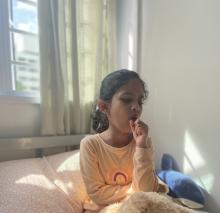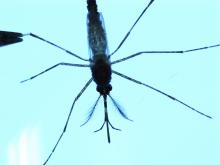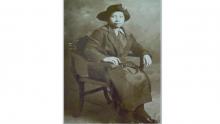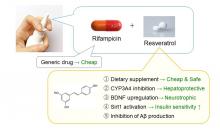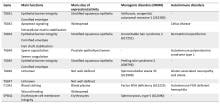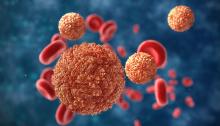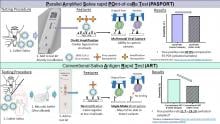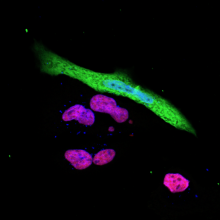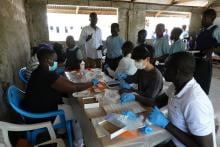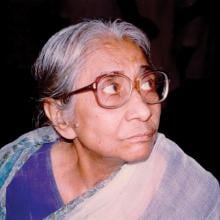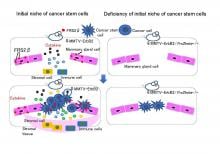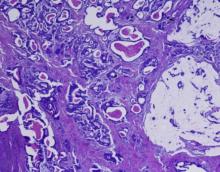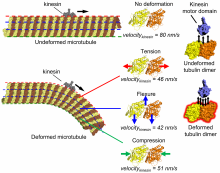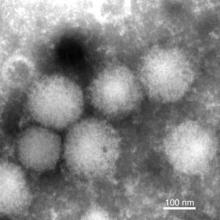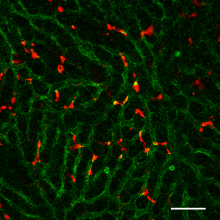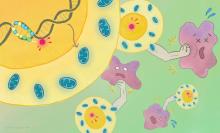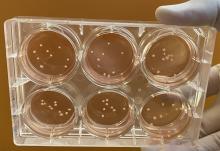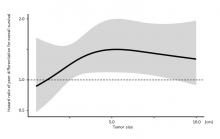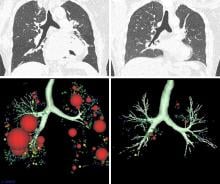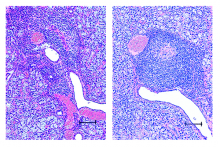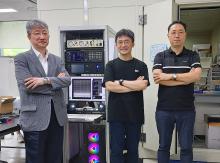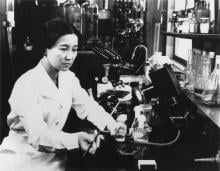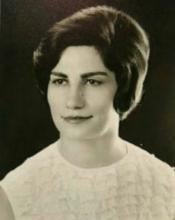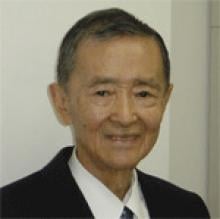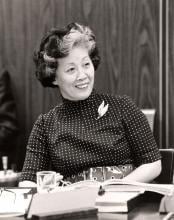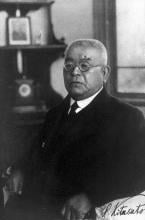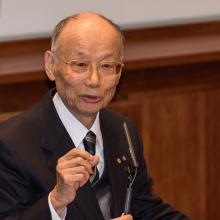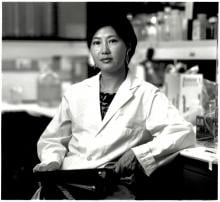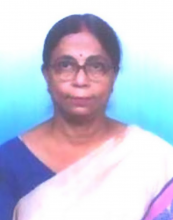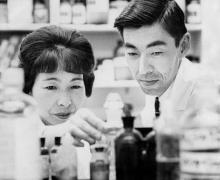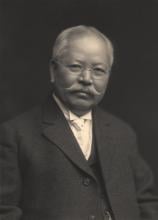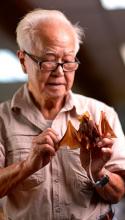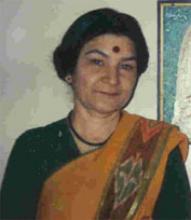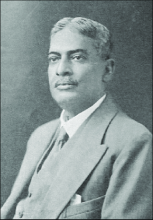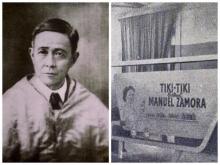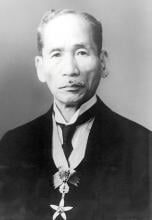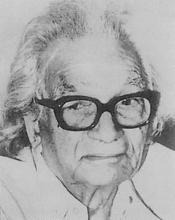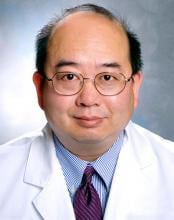Diseases
News

21 Jan 2022
A booster dose of the Pfizer–BioNTech vaccine (BNT162b2) against SARS-CoV-2 after an initial two doses of either the CoronaVac inactivated virus vaccine or Pfizer–BioNTech mRNA vaccine is shown to provide protection against the Omicron variant, in a pair of papers published in Nature Medicine.
20 Jan 2022
A specific deep neural network model called Bidirectional Long-Short-Term Memory can use cough sounds to distinguish sick from healthy children, paving the way for preliminary screening.
13 Jan 2022
The dengue virus alters mosquito behaviour in a way that makes it three times more efficient at transmitting infection.
29 Dec 2021
Giants in History: Filipina chemist María Orosa (29 November 1892–13 February 1945) fought malnutrition and food insecurity in the Philippines by devising over 700 culinary creations including Soyalac, a nutrient rich drink made from soybeans, and Darak, rice cookies packed with Vitamin B1, which could prevent beriberi disease caused by Vitamin B1 deficiency.
27 Dec 2021
Researchers from Osaka City University have shown in mice models of Alzheimer's disease, frontotemporal dementia, and dementia with Lewy bodies, that the intranasal administration of rifampicin and resveratrol in combination is safer and improves cognitive function more than rifampicin alone. The research results are expected to lead to the development of safe and effective nasal spray for the prevention of dementia.
23 Dec 2021
By searching for the protein transglutaminase 1 (TGM1) among patients with various autoimmune skin diseases, researchers have successfully identified a separate disease that
can be linked to autoimmunity against TGM1. This backward method
demonstrates a new way of identifying autoantigens as markers for various
diseases. By letting autoantigens point to the disease, diagnosis and
treatment can be facilitated, according to the study now published in PNAS.
15 Dec 2021
Zika virus infection hijacks glucose metabolism for its own good and to the detriment of infected foetuses.
08 Dec 2021
A new saliva-based COVID-19 Antigen Rapid Test (ART) technology co-developed by the SingHealth Duke-NUS Academic Medical Centre and the National University of Singapore shows promise in early clinical testing, outperforming existing ARTs and delivering results in minutes, with nearly comparable sensitivity to the gold standard Polymerase Chain Reaction (PCR) test.
07 Dec 2021
Scientists at Hokkaido University and Texas A&M University have identified a key mechanism used by the SARS-CoV-2 virus to evade host immune systems.
30 Nov 2021
Researchers at the Department of Microbiology at The University of Hong Kong have succeeded in the isolation of SARS-CoV-2 Omicron variant from clinical specimens. This is the first known research team in Asia that has succeeded in isolating the Omicron variant. The isolated variant will enable the development and production of vaccines against Omicron, which has been designated as a "variant of concern" by the World Health Organization.
24 Nov 2021
Researchers from the Osaka City University Graduate School of Medicine have shown in patients with early-stage hepatocellular carcinoma who received cancer treatment that eliminating the hepatitis C virus with a direct-acting antiviral treatment reduces the risk of the liver cancer progression and increases overall patient survival.
16 Nov 2021
Scientists are turning to genomics to better understand the epidemiology of malaria and to inform control and elimination interventions and strategies. In the Lake Victoria region of Kenya, malaria burden remains very high despite more than a decade of intense control activities. A team of researchers from Osaka City University, Nagasaki University, London School of Hygiene and Tropical Medicine, and Mount Kenya University generated whole Plasmodium falciparum genome sequences from the lake region. Their analyses revealed that malaria parasites from this region appear distinct from other parasites from East Africa, while frequencies of known drug resistance markers were similar to those in other East African parasite populations. Their findings will help to develop improved surveillance tools to determine parasite transmission routes and aid clinical disease management.
15 Nov 2021
Giants in History: Indian organic chemist Asima Chatterjee (1917 to 2006) studied the medicinal properties of plant products, especially compounds known as vinca alkaloids.
08 Nov 2021
We have clarified at the molecular level the mechanism by which a microenvironment, a so-called niche that surrounds cancer cells, is formed in which stromal cells and immune cells are attracted at an initiation stage of breast cancer onset. A molecule called FRS2β is found to be critical for creating this microenvironment. The present finding is expected to be beneficial in prevention, diagnosis and treatment of cancers at the initiation stage.
05 Nov 2021
Quick seawater test may reveal health of corals, Infectious disease caused by a new nairovirus, Converting CO2 into useful compounds and Automated COVID-19 diagnosis from chest scans all in the November Editor's Choice. Plus our latest podcast: Gender and Conflict in Myanmar.
02 Nov 2021
The world’s largest analysis of gastric tumour cells provides a launch pad for scientists to plan more effective therapies.
19 Oct 2021
Researchers from Korea reveal the key protein involved in the development of aggressive prostate cancer
13 Oct 2021
Direct evidence that microtubules function as mechano-sensors and regulate the intracellular transport of molecules has been reported, leading to new possibilities in the fields of biomechanics, medicine, and biosensors.
05 Oct 2021
Researchers are empowering the elderly in Singapore to choose their preferred treatment option when diagnosed with end-stage kidney disease.
04 Oct 2021
A previously unknown virus that can infect humans and cause disease has been identified by scientists in Japan. The novel infectious virus, named Yezo virus and transmitted by tick bites, causes a disease characterized by fever and a reduction in blood platelets and leucocytes.
01 Oct 2021
Paris, 29 September — UNESCO and the L'Oréal Foundation are unveiling the winners of this year’s International Prize for Women in Science, which honours five eminent women scientists with exceptional careers from the five regions of the world, as it has done annually since 1998.
29 Sep 2021
Geneva, 28 September 2021 – The Stop TB Partnership today released new data showing how the COVID-19 pandemic and dismally low levels of funding represent the main barriers to achieving the United Nations Sustainable Development Goals of ending TB by 2030.
17 Sep 2021
A specially designed lipid nanoparticle could deliver immune-signaling molecules into liver macrophage cells to overcome resistance to anti-tumor immunotherapy.
13 Sep 2021
iCeMS scientists and colleagues have designed a molecular code that powers up cancer-fighting immune cells.
10 Sep 2021
Magnetic patterns in meteorites, Treating mitochondrial diseases, underwater sensors and a broad COVID-19 vaccine in the September Editor's Choice. Plus, what's it like to communicate vaccine research in a pandemic and Asia Research News 2022.
07 Sep 2021
Recreating major pathological features of Parkinson’s disease in a lab-grown, human mini-brain will help researchers to explore new treatments. This is the first time that Lewy bodies, a hallmark of Parkinson’s disease in patients’ brains, have been produced in the laboratory, offering new insights into the disease.
06 Sep 2021
Using data from 1,107 patients dating back over 30 years, researchers have connected prognostic impact to poorly differentiated tumor size in hepatocellular carcinoma. Data confirmed previous findings that after resection, <2 cm sized tumors had excellent long-term outcomes. However, ≥2 cm and ≥5 cm sizes shared a risk of early recurrence with the latter size also at risk of early extrahepatic recurrence.
25 Aug 2021
A novel CT scan-based approach has revealed significant changes in a parameter indicating lung destruction in some asthmatics. This finding could lead to more personalized treatments for asthma accompanied by persistent airflow limitation.
20 Aug 2021
Sjögren's syndrome is an autoimmune disease that attacks the tear duct and salivary glands, leading to patients suffering unbearable dry eyes and mouth. To date, treatment options have been limited. But this may change thanks to a recently developed mouse model that will help explain the pathogenic mechanisms behind the disease.
10 Aug 2021
A new, energy-efficient method of electrical brain stimulation developed by researchers from the Daegu Gyeongbuk Institute of Science and Technology could aid stroke rehabilitation and has few side effects.
Events
Sorry, no events coming up for this topic.
Researchers
Sorry, no researchers coming up for this topic.
- « first
- ‹ previous
- 1
- 2
- 3
Giants in history
Ruby Sakae Hirose (1904 – 1960) was a Japanese-American scientist whose research contributed significantly to our understanding of blood clotting, allergies and cancer.
Iranian physician and bacteriologist Azar Andami (8 December 1926 – 19 August 1984) developed a cholera vaccine to combat an outbreak that swept through the Middle East, India, Southeast Asia, and Africa in 1937.
Michiaki Takahashi (17 February 1928 – 16 December 2013) was a Japanese virologist who developed the first chickenpox vaccine.
Irene Ayako Uchida’s (8 April 1917 – 30 July 2013) strides to understand genetic diseases such as Down syndrome paved the way for early screening of chromosomal abnormalities in foetuses.
Baron Kitasato Shibasaburo (29 January 1856 – 13 June 1931) was a Japanese physician and bacteriologist whose work led to a new understanding of preventing and treating tetanus, diphtheria and anthrax.
By isolating soil microorganisms and studying the compounds they produce, Satoshi Omura (born 1935) discovered almost 500 organic compounds with unique properties that were produced by these microorganisms, including many new antibiotics.
Chinese-American virologist and molecular biologist Flossie Wong-Staal (27 August 1946 – 8 July 2020) was the first scientist to clone HIV and determine the function of its genes.
Maharani Chakravorty (1937 – 2015) was one of India’s earliest molecular biologists whose research paved the way for advances in the treatment of bacterial and viral infections.
Husband and wife team, Kimishige (3 December 1925 – 6 July 2018) and Teruko Ishizaka (28 September 1926 – 4 June 2019) discovered the antibody class Immunoglobulin E (IgE) that triggers allergic reactions. They also discovered that IgE antibodies attach to white blood cells, known as mast cells, releasing histamine, which causes allergic reactions.
Japanese chemist Takamine Jokichi (3 November 1854 – 22 July 1922) founded the Tokyo Artificial Fertilizer Company, where he isolated a starch-digesting enzyme (named takadiastase) from the fungus Aspergillus oryzae.
Lim Boo Liat (21 August 1926 – 11 July 2020), a leading authority in the conservation of Malaysia’s biological diversity, had his initial interest in the outdoors piqued by nature lessons in school. Lim, who helped found the National Zoo of Malaysia and re-establish the Malaysian Nature Society, had a particular interest in researching zoonotic diseases associated with small animals.
A pioneer of bio-organic chemistry, Darshan Ranganathan (4 June 1941 – 4 June 2001) is remembered for developing a protocol for synthesising imidazole, a compound used to make antifungal drugs and antibiotics. Widely considered India’s most prolific researcher in chemistry, she also published dozens of papers in renowned journals on protein folding, molecular design, chemical simulation of key biological processes, and the synthesis of functional hybrid peptides and nanotubes.
Indian scientist and physician Upendranath Brahmachari (19 December 1873–6 February 1946) is best known for creating a drug called Urea Stibamine, used to safely and reliably treat visceral leishmaniasis (or Kala-azar), a severe infection caused by the Leishmania parasite.
Filipino chemist and pharmacist Manuel A. Zamora (29 March 1870 – 9 July 1929) is best remembered for his discovery of the tiki-tiki formula to combat beriberi, a disease caused by Vitamin B1 deficiency.
Indian organic chemist Asima Chatterjee (1917 to 2006) studied the medicinal properties of plant products, especially compounds known as vinca alkaloids.
Umetaro Suzuki (7 April 1874 – 20 September 1943) was a Japanese scientist best remembered for his research on beriberi, a disease caused by vitamin B1 deficiency, characterized by limb stiffness, paralysis and pain.
Salimuzzaman Siddiqui (19 October 1897 – 14 April 1994) was an artist and chemist from Pakistan whose research focused on natural products from plants.
Barry Paw (29 August 1962 – 28 December 2017) was a biologist and oncologist who discovered several novel genes and their functions in red blood cells.


